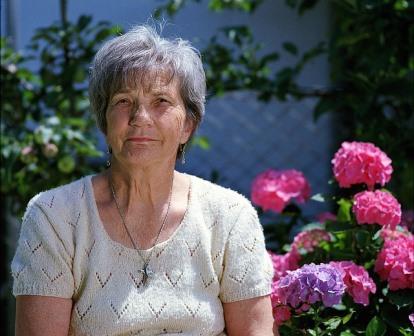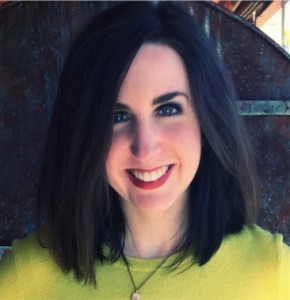- Calls to this hotline are currently being directed to Within Health or Eating Disorder Solutions
- Representatives are standing by 24/7 to help answer your questions
- All calls are confidential and HIPAA compliant
- There is no obligation or cost to call
- Eating Disorder Hope does not receive any commissions or fees dependent upon which provider you select
- Additional treatment providers are located on our directory or samhsa.gov
Supporting Elderly Family Members who have an Eating Disorder

Contributor: Courtney Howard, B.A., Executive Assistant at Eating Disorder Hope and Addiction Hope
A common misconception about eating disorders is that they only affect young people. The reality is that eating disorders do not discriminate. How can you best support your elderly family member struggling with disordered eating?
Whether it is a parent, grandparent, or other elderly relative engaging in his or her eating disorder, you can bring the same love and support as you would if it was your child or sibling. Age does not affect the primary reasons that an individual likely has an eating disorder, though the circumstances are different. At their core, eating disorders are a coping mechanism gone wrong.
Eating Disorders in the Elderly
A 2006 study on the prevalence of eating disorders among elderly women sampled 1,000 females ages 60 to 70 [1]. Researchers found that more than 80 percent controlled their weight in some way, and 3.8 percent met the diagnostic criteria for an eating disorder. Over 60 percent of these women reported feelings of body dissatisfaction.
While major life events and stressors that can come later in life are potential triggers for eating disorders, this data suggests that body dissatisfaction is also a significant contributing factor to disordered eating in elderly women. There is a need for more research regarding elderly males with eating disorders, as there are no hard facts on the rates of body dissatisfaction among this population.
How Do I Provide Support?

Many elderly people with eating disorders feel that recovery is impossible. Depending on their age and how long they have been engaging in disordered eating, they might be resigned to living with their disorder forever. You can encourage them to develop a healthy relationship with food before this becomes a self-fulfilling prophecy.
Your loved one might be living in a nursing home or assisted living facility. If so, the eating disorder might be triggered by feeling out of control. You can plan days in which you come to take your loved one out to any restaurant he or she wants, or go to your kitchen so he or she can assist with preparing the meal. As always, you can model your own intuitive eating during shared meals.
Anxiety and depression often co-occur with eating disorders. This is true regardless of the individual’s age. Another way of being supportive if your loved one is not ready to address the eating disorder is to encourage him or her to address these other mental health concerns first.
Feeding Disorders in the Elderly

Those who are missing teeth or have serious dental problems often have difficulties chewing. These feeding disorders can sometimes lead to eating disorders, as food becomes a negative part of the individual’s life.
Elderly people with dementia are at high risk for the development of feeding disorders. They might refuse to eat, spit food out, hide it, or engage in other food behaviors that typically serve as red flags for eating disorders. Though it is possible to have an eating disorder while struggling with dementia, the most likely culprit in these cases is a feeding disorder. A 2014 study found that cognitive behavioral therapy (CBT) can help reduce these feeding problems in elderly dementia patients [2].
Helping Your Loved One
It is important to take feeding and eating disorders seriously in elderly family members. You can advocate for your loved one to medical professionals, staff at the individual’s assisted living facility, or other people who can help on a day-to-day basis. If you live with your family member, seek professional help to determine how to best address the situation.
Providing support for loved ones struggling with an eating disorder can also be as simple as letting them know how loved they are. Encouraging them to seek help and use resources available to them varies depending on how open the individual is to recovery.
Community Discussion – Share your thoughts here!
Have you had an elderly family member go through the recovery journey? What tools were most useful for you and your family during this time?

References:
[1]: Mangweth-Matzek, B., et al. (2006). Never too old for eating disorders or body dissatisfaction: A community study of elderly women. Int. J. Eat. Disord., 39: 583–586. doi: 10.1002/eat.20327[2]: Chan, C., Kwan, Y. (2014). Feeding-swallowing issues in older adults with dementia. Asian J Gerontol Geriatr 2014; 9
The opinions and views of our guest contributors are shared to provide a broad perspective of eating disorders. These are not necessarily the views of Eating Disorder Hope, but an effort to offer discussion of various issues by different concerned individuals.
We at Eating Disorder Hope understand that eating disorders result from a combination of environmental and genetic factors. If you or a loved one are suffering from an eating disorder, please know that there is hope for you, and seek immediate professional help.
Last Updated & Reviewed By: Jacquelyn Ekern, MS, LPC on June 29, 2016
Published on EatingDisorderHope.com
